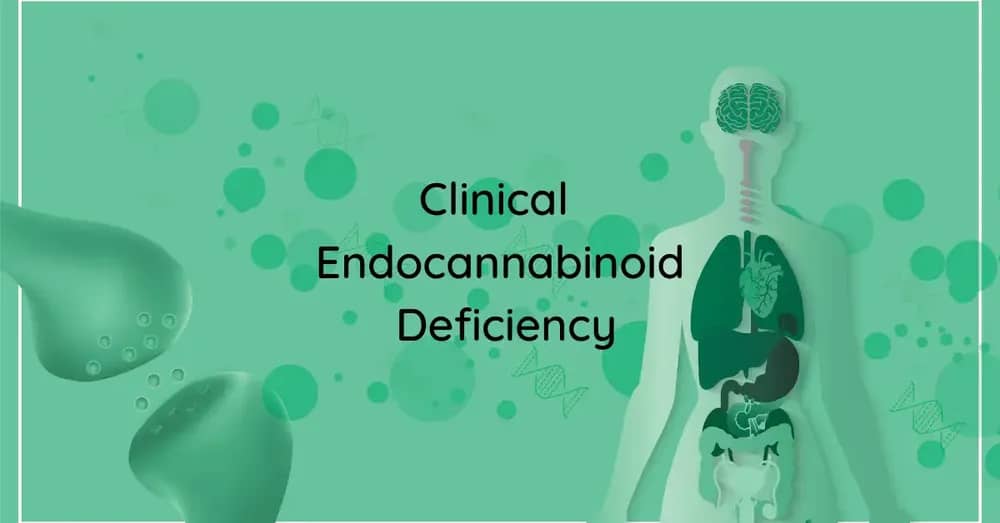The human body is a complex system of interconnected processes, one of which is the endocannabinoid system (ECS). This intricate network of receptors, enzymes, and endocannabinoids plays a crucial role in maintaining balance within the body, known as homeostasis. However, emerging research has introduced the concept of endocannabinoid deficiency, suggesting that an imbalance within the ECS could have far-reaching implications for our health and well-being.
Table of Contents
- 1 The Endocannabinoid System: A Primer
- 2 Endocannabinoid Deficiency Explained
- 3 Causes of Endocannabinoid Deficiency
- 4 1. Genetic Factors
- 5 2. Lifestyle Factors
- 6 3. Environmental Factors
- 7 Implications for Health and Well-being
- 8 Anxiety and Depression
- 9 Chronic Pain
- 10 Inflammation
- 11 Neurological Disorders
- 12 Supporting the Endocannabinoid System Naturally
- 13 Diet and Nutrition
- 14 Lifestyle Changes
- 15 Cannabidiol (CBD)
- 16 Research and Controversies
- 17 Future Directions and Potential Therapies
- 18 Conclusion
- 19 Frequently Asked Questions
- 20 1. What is the endocannabinoid system (ECS)?
- 21 2. What is endocannabinoid deficiency?
- 22 3. Who introduced the concept of endocannabinoid deficiency?
- 23 4. What are the potential causes of endocannabinoid deficiency?
- 24 5. How does endocannabinoid deficiency relate to mood disorders?
- 25 6. Can endocannabinoid deficiency impact pain perception?
- 26 7. What role does the ECS play in inflammation?
- 27 8. How can I support my endocannabinoid system naturally?
- 28 9. Is there evidence supporting the endocannabinoid deficiency theory?
- 29 10. Are there potential therapies for endocannabinoid deficiency?
The Endocannabinoid System: A Primer

At the heart of the ECS are endocannabinoids—endogenous compounds that resemble the cannabinoids found in the cannabis plant. These endocannabinoids, such as anandamide and 2-arachidonoylglycerol (2-AG), are synthesized on-demand in response to various physiological cues. They bind to cannabinoid receptors, primarily CB1 and CB2, located throughout the body. These receptors are involved in regulating diverse functions, including mood, pain perception, inflammation, immune response, and more.
Endocannabinoid Deficiency Explained
The theory of endocannabinoid deficiency proposes that some individuals may have an impaired ECS, leading to inadequate endocannabinoid signaling. This theory was initially introduced by Dr. Ethan Russo, who suggested that deficiencies in endocannabinoid levels or receptor expression could contribute to a range of health conditions. These conditions might include mood disorders like anxiety and depression, chronic pain, and even neurological disorders.
Causes of Endocannabinoid Deficiency

1. Genetic Factors
Genetic variations in the genes responsible for ECS components could contribute to reduced ECS function. Certain individuals may inherently produce fewer endocannabinoids or have altered receptor sensitivity.
2. Lifestyle Factors
Modern lifestyles characterized by chronic stress, poor diet, and sedentary habits might negatively impact the ECS. Chronic stress, for example, can lead to decreased endocannabinoid production and receptor desensitization.
3. Environmental Factors
Exposure to environmental toxins, such as pollutants and endocrine disruptors, could potentially interfere with ECS function. This interference might contribute to an overall deficiency in endocannabinoid signaling.
Implications for Health and Well-being

Anxiety and Depression
The ECS plays a pivotal role in regulating mood, and an imbalance within this system could contribute to mood disorders like anxiety and depression. Research suggests that enhancing endocannabinoid signaling might offer therapeutic benefits.
Chronic Pain
Endocannabinoids are involved in pain modulation. A deficiency in endocannabinoid levels might influence the perception and management of chronic pain conditions.
Inflammation
The ECS is also instrumental in regulating inflammation. Endocannabinoids can modulate the immune response, and a deficiency might contribute to chronic inflammation, implicated in various diseases.
Neurological Disorders
While research is ongoing, there's growing interest in the ECS's role in neurological disorders like Alzheimer's and Parkinson's. Deficient ECS signaling could potentially impact neuroprotection and cognitive function.
Supporting the Endocannabinoid System Naturally

While the field is still evolving, there are several ways individuals can potentially support their ECS naturally:
Diet and Nutrition
Consuming foods rich in omega-3 fatty acids, such as fatty fish and flaxseeds, can help support endocannabinoid production. Certain herbs, like echinacea and black truffle, might also play a role.
Lifestyle Changes
Prioritizing stress reduction through practices like meditation, yoga, and mindfulness can positively impact the ECS. Regular physical activity and sufficient sleep are equally important.
Cannabidiol (CBD)
CBD, a non-psychoactive compound found in cannabis, has gained attention for its potential to enhance ECS function. Research suggests it might alleviate symptoms associated with endocannabinoid deficiency.
Research and Controversies
The concept of endocannabinoid deficiency is not without its skeptics. Critics argue that the evidence supporting this theory is limited and that the ECS is highly adaptable, making a straightforward deficiency unlikely. While research is ongoing, recent studies have shown promising correlations between ECS imbalances and various health conditions, supporting the need for further investigation.
Future Directions and Potential Therapies
The exploration of endocannabinoid deficiency has opened doors to new avenues of research and potential therapeutic interventions. Personalized medicine, focused on addressing individual ECS imbalances, holds promise for the future of healthcare. Researchers are investigating novel ways to enhance endocannabinoid signaling, possibly leading to innovative treatments.
Conclusion
The endocannabinoid system serves as a fascinating bridge between our internal processes and external influences. While the concept of endocannabinoid deficiency is still unfolding, it underscores the importance of maintaining a balanced ECS for optimal health. As research progresses, we stand to gain a deeper understanding of the intricate interplay between the ECS, our lifestyles, and the potential therapies that may arise from this knowledge.
Frequently Asked Questions
1. What is the endocannabinoid system (ECS)?
The endocannabinoid system is a complex network of receptors, enzymes, and endocannabinoids within the body that helps regulate various physiological functions, including mood, pain, inflammation, and more.
2. What is endocannabinoid deficiency?
Endocannabinoid deficiency refers to an imbalance within the endocannabinoid system, where there might be inadequate levels of endocannabinoids or dysfunction in cannabinoid receptors, potentially leading to health issues.
3. Who introduced the concept of endocannabinoid deficiency?
Dr. Ethan Russo is a prominent figure who introduced the concept of endocannabinoid deficiency. He proposed that imbalances within the ECS could contribute to conditions like anxiety, depression, and chronic pain.
4. What are the potential causes of endocannabinoid deficiency?
Endocannabinoid deficiency might arise due to genetic factors, lifestyle choices like chronic stress or poor diet, and exposure to environmental toxins that interfere with ECS function.
5. How does endocannabinoid deficiency relate to mood disorders?
The ECS plays a role in regulating mood, and a deficiency within this system could contribute to mood disorders such as anxiety and depression.
6. Can endocannabinoid deficiency impact pain perception?
Yes, the ECS is involved in pain modulation. A deficiency in endocannabinoids might influence how the body perceives and manages chronic pain.
7. What role does the ECS play in inflammation?
The ECS helps regulate inflammation, and an imbalance in the system could lead to chronic inflammation, which is linked to various diseases.
8. How can I support my endocannabinoid system naturally?
You can support your ECS through a balanced diet rich in omega-3 fatty acids, practicing stress-reduction techniques, getting regular exercise, and considering the use of cannabidiol (CBD) products.
9. Is there evidence supporting the endocannabinoid deficiency theory?
While the concept is still debated, recent studies have shown correlations between ECS imbalances and various health conditions. Research is ongoing to better understand the role of the ECS in maintaining health.
10. Are there potential therapies for endocannabinoid deficiency?
Researchers are exploring potential therapies that target ECS imbalances, including personalized medicine approaches. Cannabidiol (CBD) supplementation is also being investigated for its potential to enhance ECS function.

Fact Checker
Kevin S. Ford, our meticulous fact checker, ensures that the information presented on BestCBDGummiesFor.com is accurate and trustworthy. With a background in journalism and a degree from Emerson College, Kevin is skilled in verifying data from reliable sources, delivering content that readers can confidently rely on.














+ There are no comments
Add yours